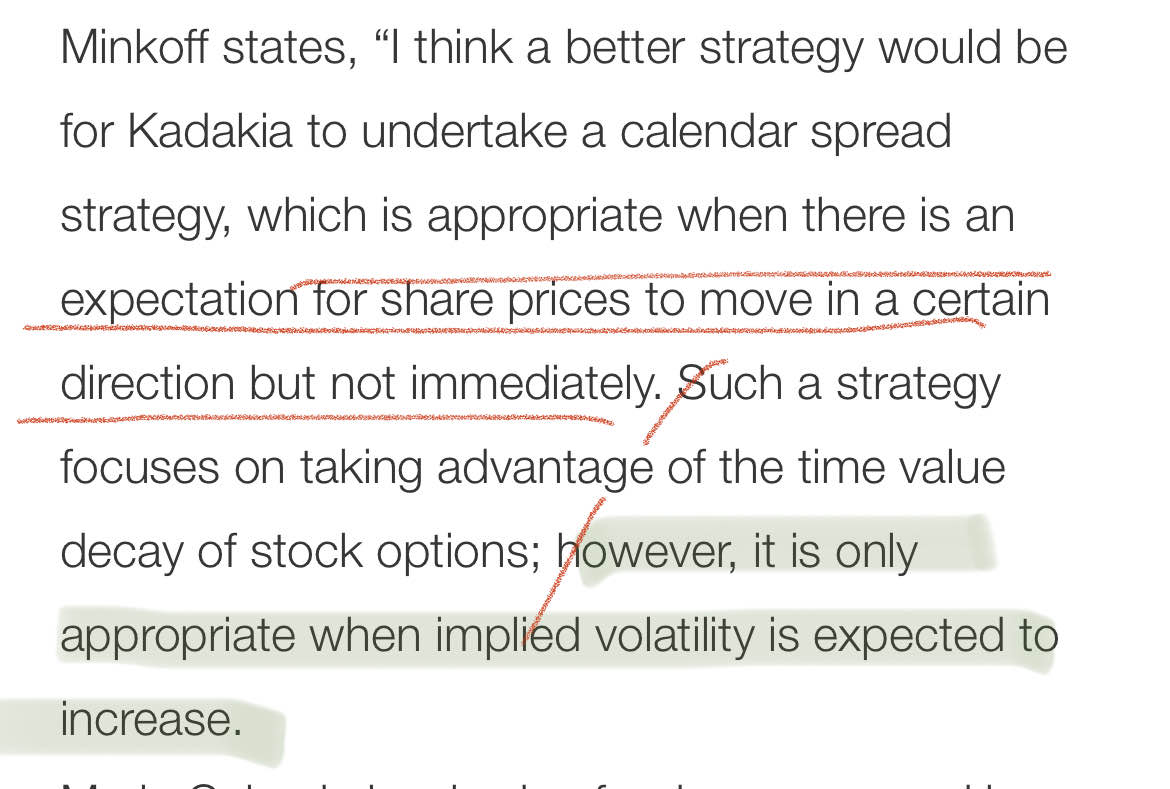NO.PZ202208100100000202
问题如下:
In her statement, Minkoff is least likely correct with regard to:
选项:
A.
implied volatility.
B.the time value decay of options.
C.
the direction and timing of a price move.
解释:
Solution
A is correct. Minkoff is incorrect in stating that calendar spreads are appropriate only if the expectation is for an increase in implied volatility. A short calendar spread is appropriate if the expectation is for a decrease in implied volatility or a big move in share prices that is not imminent. If a long calendar spread is implemented, the expectation is for a stable market or an increase in implied volatility. Minkoff is correct that a calendar spread strategy is appropriate when there is an expectation for share prices to move in a certain direction but not immediately and that such a strategy focuses on capturing the time value of stock options.
B is incorrect. Minkoff is correct about the capture of the time value of the option.
C is incorrect. Minkoff is correct about the direction and timing of the price move.
我感觉是阅读理解问题,下图画红色线的句子,是这个意思吗?: 当价格向某一个方向移动,但不是立即的变动,可以使用calendar spread 策略—-选项c意思是这句话正确吗?
但提干中也说,kadakia认为价格下个月就会降,我理解,这代表短期波动大,长期波动小,implied volatility下降,可以用short calendar。我理解,不管是不是立即变动,都可以使用calendar





